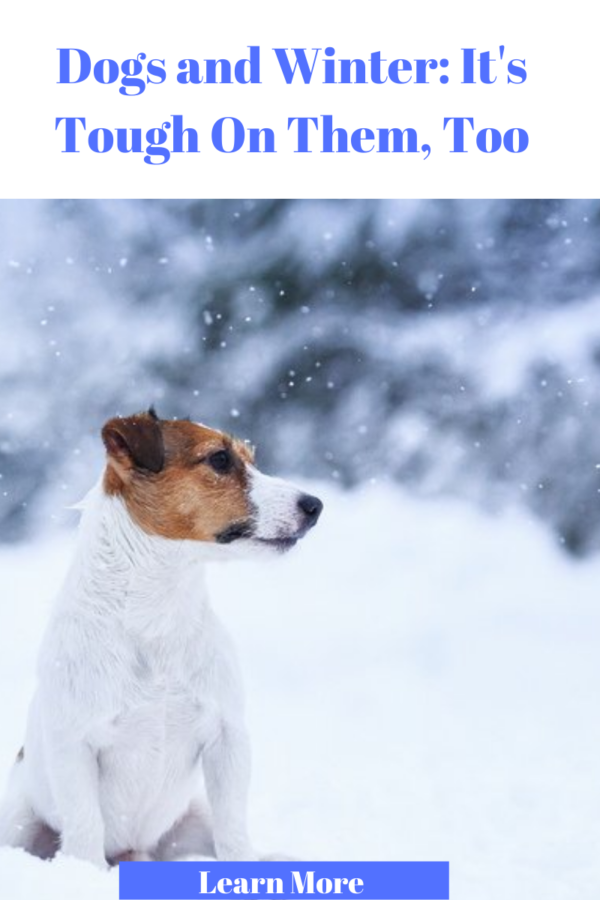Dogs and Winter: It’s Tough On Them, Too
Posted on January 19, 2022 by Joy of Living No comments

I like to educate pet guardians whenever possible, A few weeks ago, I had an opportunity to educate the staff at my doctor’s office on the issue of dogs and winter.
I spoke briefly to the receptionist when I arrived, and the conversation came to what I do for a living. The receptionist began talking about her dog’s reaction to the cold weather.
Her dog is a 9 year old Great Dane, Rhodesian Ridgeback mix that doesn’t like the cold. The receptionist was making fun of the dog for not wanting to go outside in the cold. When the dog goes out, she walks very gingerly, goes potty and immediately after is ready to head inside.
When outside with your dog in the cold of winter, here are a few points to keep in mind:
Disclosure: This post contains affiliate links. We receive a small commission on goods purchased via these links, at no additional cost to you.
Dogs Have Fur Coats, But Still Feel The Cold
Dogs feel the cold as much or more than humans. Dog paws are exposed to the cold and snow, comparable to us going out in our bare feet. Although snow booties are available for dogs to protect their paws, many dogs don’t tolerate wearing them.
Wipe your dog’s paw when they come inside to remove any ice melt product, and to remove snow that will keep paws colder longer. Dog paws can come dry due to exposure to cold and snow, applying a paw balm to your dog’s paws well help curb damage caused by exposure to the cold.
The receptionist considered for a moment, then said that made sense. Evidently she hadn’t thought of it that way before.
Senior Dogs Can Be More Sensitive To Cold Weather
As dogs age, they may become more sensitive to cold weather. At 9 years old, the receptionist’s dog is considered a senior. Some senior dogs continue to embrace the colder temperatures well into their older years. Dogs suffering from joint problems such as arthritis may be affected by colder temperatures more dramatically.
There was another opportunity to discuss dogs and winter with the nurse toward the end of my appointment. She told me about her dog, a miniature Australian Shepherd.
Go Outside With Your Dog
Living on a farm, her dog often goes outside to run. Being five years old, the dog isn’t very affected by the cold. She asked about my plans for the day, and I indicated I’d be dog walking.
“You walk them in this weather?” Yes, I replied, dogs still have to go potty, regardless of the temperature. The way I see it, if I want dogs to go outside, it’s only fair I go out with them. Another look that said “hmm, never thought of it that way.”
Bring Dogs Inside When Temperatures Dip
When it comes to dogs and winter, realize they feel the cold too. When temperatures dip below freezing, don’t leave your dog outside for extended periods of time.
If you observe someone leaving a dog outside in freezing temperatures without shelter from the cold, contact your local animal shelter for advise on how best to help the dog.
Shop for pet friendly ice melt. Some ice melt contains rock salt, which can injure dog’s paws. Ice melts containing sodium chloride, potassium and calcium, which can also make pets ill.
Winter can be a rough time of the year, but taking precautions for you and your dog will keep you healthy until spring!
